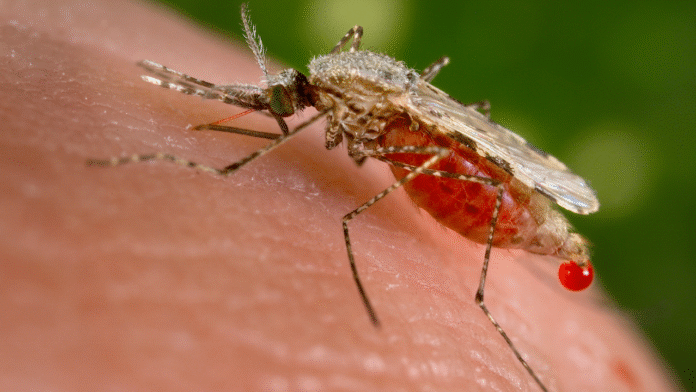The Federal Capital Territory Administration (FCTA) reiterated its commitment to fighting malaria and other vaccine-preventable diseases.
The Mandate Secretary for Health Services and Environment Secretariat, Dr Adedolapo Fasawe, made the pledge on Friday at the commemoration of the 2025 World Malaria Day in Asokoro District Hospital, Abuja, themed, “Malaria ends with us: Reinvest, reimagine, reignite.”
According to the World Health Organisation, the 2024 annual report for malaria revealed that one in four malaria cases and one in three malaria deaths worldwide occur in Nigeria.
Fasawe said in the FCT, malaria affects an estimated 18.8 per cent of the population, with rural communities experiencing the highest transmission rates.
According to The PUNCH, she noted that malaria remains one of the leading causes of hospital visits and admissions across the six area councils in the territory, and many rural and peri-urban communities still lack access to effective malaria prevention and treatment.
“We record around 1.4 million cases of malaria annually. Only 31.1 per cent of residents have access to Long-Lasting Insecticide-Treated Nets, and just 42.2 per cent of children sleep under them.
“This year, our goal is to raise awareness across all FCT communities. Through media outreach and grassroots engagement, we aim to promote healthier practices and encourage community ownership of malaria prevention strategies.
“I implore you all to take advantage of the free malaria testing services and make good use of the insecticide-treated nets provided—these represent our government’s commitment to this fight.
Together, we can build a future where no child dies from a mosquito bite—a future where malaria is a thing of the past, and every community is healthy, safe, and thriving,” she stated.
She further highlighted that malaria is both preventable and treatable, yet it continues to affect many lives, especially children, pregnant women, and people living in hard-to-reach areas with limited access to healthcare.
“This must not continue. This year’s theme encourages us to reinvest in our healthcare systems, in research, and in prevention tools like insecticide-treated nets and accurate diagnostic services. Every naira we invest today can save lives tomorrow; reimagine how we fight malaria.
“We must think innovatively, use new technologies, engage communities, and bring healthcare services closer to the people; and reignite our energy, our sense of urgency, and our unwavering commitment. We must renew our determination to end malaria once and for all.
“As the Mandate Secretary for Health Services and Environment, I assure you that we remain fully committed to this fight. In the FCT, we are strengthening our monitoring systems, scaling up malaria interventions, and collaborating with partners at local, national, and international levels. But the government cannot do it alone. We need everyone’s support—health workers, parents, teachers, religious leaders, and community members alike,” she said.
She urged residents to sleep under insecticide-treated mosquito nets, keep their surroundings clean and eliminate stagnant water, seek medical care immediately if malaria symptoms appear, and take responsibility for fighting the disease.
The Mandate Secretary also took a proactive approach by using the event to raise awareness of health insurance and vaccination, and parents seized the opportunity to have their children vaccinated with essential vaccines, such as the Oral Polio Vaccine, Pentavalent vaccine, Pneumococcal Conjugate Vaccine, Rotavirus vaccine, and Inactivated Polio Vaccine.
The West and Central African Programme Director at Malaria Consortium, Dr Kolawole Maxwell, stated that the path to elimination of malaria could only be possible if there is sustained investment, innovation, and collaboration.



